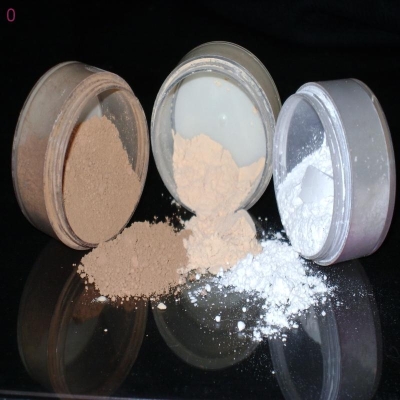Changes in the relationship between corals and symbicated algae can help bleach corals recover
-
Last Update: 2020-12-14
-
Source: Internet
-
Author: User
Search more information of high quality chemicals, good prices and reliable suppliers, visit
www.echemi.com
BEIJING, Dec. 9 (Xinhua Sun Selffa) Springer Nature's international academic journal Nature-Communications recently published an ecological research paper that said the relationship between corals and symbloid algae can help bleached corals recover in warm waters, but only if there is no strong local human interference.
could have an impact on managing corals and predicting their response to future climate change.
that the increasing frequency of ocean heat waves caused by climate change poses a serious threat to the world's coral reefs. Warming causes corals to excrete symbient algae that provide nutrients in their tissues, which leads to bleaching and makes corals more vulnerable to hunger, disease and death. While some algae are more resistant to high temperatures than others, previous studies have shown that bleached corals need water temperatures to return to normal before they can regain their algae and recover.
, co-author of the paper and a colleague at the University of Victoria in Canada, studied corals at Kiritimati Atoll in the Pacific Ocean during the 2015-2016 tropical ocean heat wave. The human disturbance of the atoll shows a certain gradient: villages and infrastructure at one end and almost no human interference at the other. Before the heat wave, corals at the "disturbed" end of the atoll were home to high-temperature algae, while corals in less disturbed areas contained heat-sensitive symbients. Corals, dominated by heat-resistant algae, are less likely to bleach, as expected, after a two-month heat wave. Some corals, which contain heat-sensitive algae, have been bleached, but have unexpectedly recovered while the water is still warm.
effect has not been previously recorded and has only been observed in areas where there is no strong local disturbance, which appears to be because corals are excreting heat-sensitive algae and replacing them with higher-temperature-resistant species.
authors say the study suggests that corals may have multiple ways to survive long-term heat waves: they may be able to resist or recover from bleaching, which is influenced by their symbicated relationships. Testing how these pathways are affected by the coral-symbic combination and human interference patterns will help manage coral reefs in future long-term heat waves.
This article is an English version of an article which is originally in the Chinese language on echemi.com and is provided for information purposes only.
This website makes no representation or warranty of any kind, either expressed or implied, as to the accuracy, completeness ownership or reliability of
the article or any translations thereof. If you have any concerns or complaints relating to the article, please send an email, providing a detailed
description of the concern or complaint, to
service@echemi.com. A staff member will contact you within 5 working days. Once verified, infringing content
will be removed immediately.







